
A fine chapel of two stories took time to build, but the chapter house at the nascent abbey had recently been completed. For now it would have to serve as everything except a church. Later a dormitory would be built above it, and a calefactory and refectory beside it, but in the meantime the monks slept and ate and met in this one building.
Of monks there were already four. Father Brude thought that there would be the twelve that the Rules required even before the chapel was completed, and indeed when Brude had gone north to establish the abbey under the bishopric of Whithorn, he had suggested that he would not return alone.
Father Aelfden would have rejoiced if he had not believed that three of the monks had come merely as a result of his own fame. Margaret Queen of Scots had requested a copy of On Time and Untruths of the Mind some months before, and the book seemed to have inspired some of the Scottish monks who had been tasked with copying it to seek out its author. Aelfden thought he preferred Brother Myrddin, strange as he was, who had come north following a vision, never dreaming he would find Aelfden of Lund at the end of it.
Though it was disorienting to see the brothers rise when he entered the room, still the gradual return to the rhythms of monastic life was a relief to him. In his time in the valley he had tried to carry on with the rituals of daily prayer, but he had all the cares of a parish to tend to as well, and even if he had never slept, he would not have had time enough.
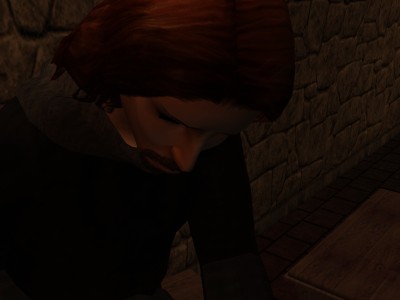
Now there were four monks to ensure the hours would be rung, and soon Father Brude would find another priest to take the parish of Saint Margaret. Until then, all the joys and tragedies and sorrows of his parishioners were upon him, and he had never learned how to bear even his own passions except by bleeding them out of him.
Since he had come to this place, he had seen a church and his own body profaned by demons, and he knew it was not by chance that they had appeared to him and not to any other man. As long as his heart was open, he knew it would be prey to such as these beautiful monsters were. Aelfden was thirty-six years old, and he had lived long enough to know that these were his temptations, and this was the cross he would have to bear. He hoped that he would soon be able to lay it down, give his heart up only to God, and live again the life of the mind. At times it seemed selfish, but in truth he knew it safer for all.
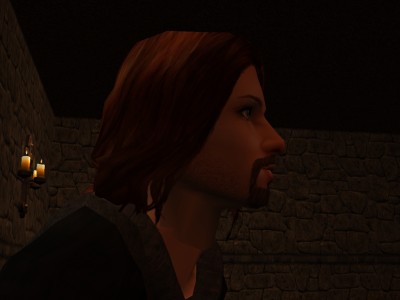
The door opened at the far end of the long building, and for a moment the red gloom of candlelight and ruby-colored windows was deepened by a glimpse of the golden brilliance of a fair September afternoon. Then the silhouette of the visitor disappeared as the door closed behind him, and Father Aelfden had to wait for him to approach to see who might be coming.
The stride was bold enough and the man tall enough for Aelfden to guess that it was his cousin the King long before he had stepped out of the shadows.
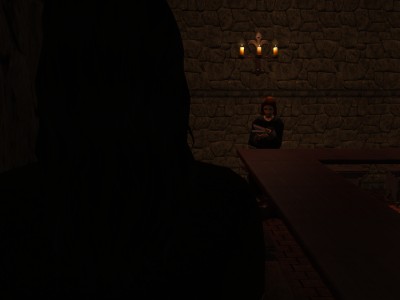
“Ah!” Sigefrith sighed in satisfaction. “The odor of freshly cut and laid stone. I think I like it better than any other. Except perhaps that of a particularly nice roast of meat, though I might be saying that because I’m hungry. Eh, Father? Good afternoon.”
“Good afternoon,” Aelfden said. “Please have a seat.”
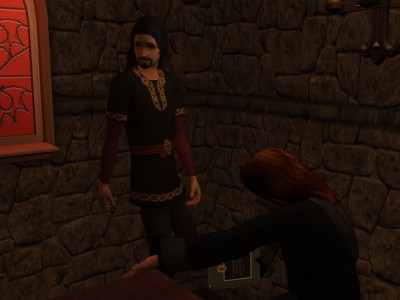
“How do you like it? Miserable and gloomy and uncomfortable enough for you? Chair’s nice and hard,” he said after he had sat to judge it. “No back either – just the thing to keep a man awake.”
“Precisely the reason.”
“I never could have been a monk. I believe I am an anti-monk. I like everything you deny yourselves.”
“We all enjoy comforts and pleasures. If we did not, there would be no virtue in giving them up.”
“Unless we find pleasure in giving them up,” Sigefrith laughed. “Sometimes I wonder about you, Father.”

“Are you come to inspect the work?” Aelfden asked to change the subject.
“No! But I shall have a look when I leave. I came to see you.”
“Oh?”
“I was just thinking today… trying to figure out who would be my successor if I were to die, and Caedwulf and Drage were to die.”
“I pray that God will grant you all long lives and many descendents.”
“Indeed. But supposing God did not. Do you know? I think it would be you.”
“I?” Aelfden gasped.
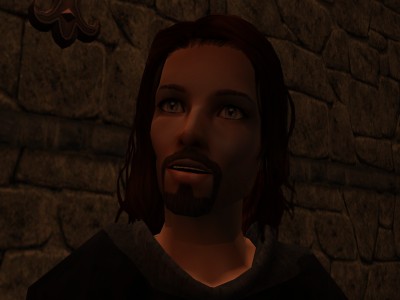
“I’ve been going up the paternal line, but it seems that in my family we haven’t had much luck having sons or keeping them alive. All the way up to my great-grandfather Caedwulf, who was the younger brother of old Bluetooth. So that means some male descendent of Bluetooth. But, wouldn’t you know? He doesn’t have any legitimate male descendents alive.”
“But…”
“So I said to hell with them – pardon me, Father – and I looked at my mother’s family. You’re the only living first cousin I have. Though you make matters worse by not having any sons at all.”
“I certainly could not and would not be king, Sigefrith. The cares of my parishioners are already more than I can bear.”
“You bear them nevertheless, Father.”
“Caedwulf is already fourteen. He will soon have sons of his own. And your wife is young. I think you need not yet fear the extinction of your line.”
“I don’t know. I have had four sons, and one of them is not mine at all, and one of them died. I fear for the others. It takes so little: a fall, an illness. Perhaps it is a curse. Perhaps it is a curse we have brought upon ourselves, in my family.”
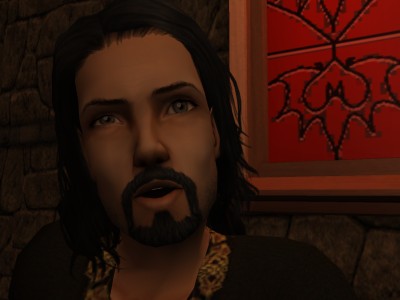
“Sigefrith, no.”
“I don’t know much about old Caedwulf except that he was a bit of a barbarian, and he hung the bodies of his slain enemies upside down from the prows of his ships until the gulls picked them clean. My grandfather was as anti-monk as they come, and was enormously fat, and had many mistresses. And my father was not a bad father or husband, but he was a poet of profanity, and my poor mother and stepmother lived in constant fear that he would bring the wrath of God down on all of our heads, as he so often demanded.”
“And so you believe that he has?”
“Perhaps they all have. And I too.”
“And the result is that you have few sons? Sigefrith.”
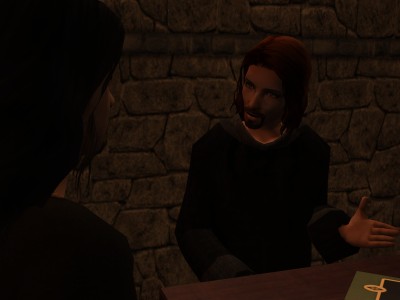
“Perhaps the sins of the fathers are being visited on our heads in small doses to make the chastisement last longer.”
“‘The son shall not bear the iniquity of the father, neither shall the father bear the iniquity of the son.’”
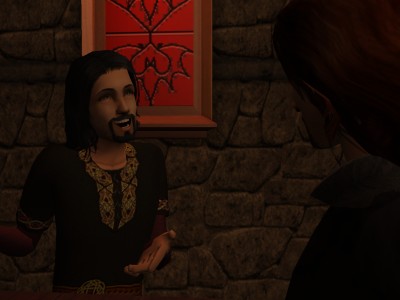
“‘And the wickedness of the wicked shall be upon him.’ I know better than to come see you without arming myself with scripture first,” Sigefrith laughed.
“If you wish to cross scripture with someone, may I suggest the Baron as a worthy opponent? I did not speak merely to give you an opportunity to make a clever reply.”

“Forgive me, Father. What I should have said was that it does not help to be absolved of the iniquities of my father if I only repeat them on my own account.”
“It is not too late for you to redeem yourself.”
“It is too late for Catherine,” Sigefrith murmured.
“Sigefrith, no.”
“Eadie believes that this child was a miracle, and the Lord knows she was worthy of a miracle. And miracles do not die.”
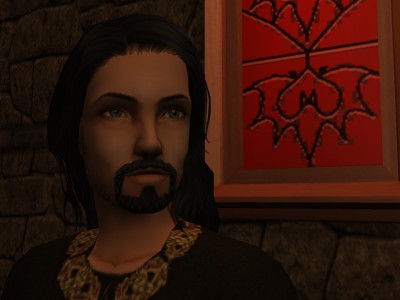
“What do you conclude?”
“That the Lord revoked this miracle on account of my utter unworthiness.”
“Does Her Majesty believe so?”
“I don’t know. She says she does not.”
“I shall speak to her. Tell me what you believe.”
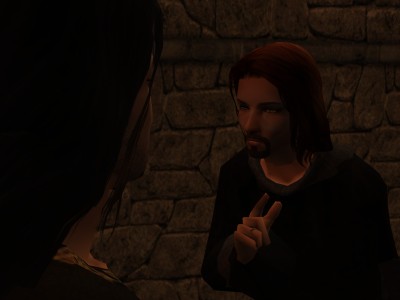
“I don’t know that either.”
“If you believe in miracles, it is already a good sign. However, Sigefrith, while I am only a humble priest and am not trained to recognize miracles, I observe that your wife is only twenty-one years old, and you have been married only five years, and she had already borne a child before Catherine. There is no need to look for miracles to explain her birth.”
“She certainly thought so.”
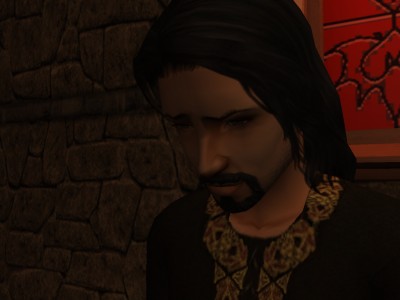
“She is only twenty-one years old, and does not yet realize that five years is a very short time. I will be more surprised if she does not have more children than if she does, and I do not think any further miracles will be necessary. Nor do I think you need to look to divine retribution to explain the Princess’s death. Sigefrith, newborn babies often die, and the death of innocents should already be proof to you that the Lord does not decide the earthly destinies of men based on their sins. Otherwise no baby would ever die, and old sinners such as you and I would never live to see thirty.”

“But for the sins of their fathers, perhaps…”
“I have already told you my opinion on that matter.”
Sigefrith shrugged and stood as if he had decided to put an end to the conversation.
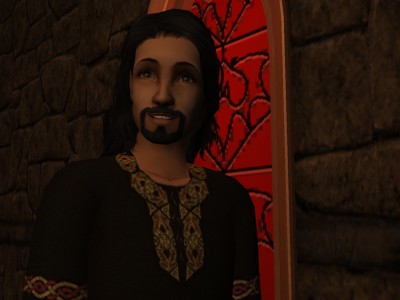
“Very true,” he said, “and I believe you have so thoroughly argued that point with Alred and Theobald that I shall not dare cross scriptural swords with you. I declare myself beaten,” he smiled and bowed.
“I never intended to spar with you.”
“That is fortunate for me, as you are an unbeatable opponent. Ah!” he cried and patted the wall lovingly. “The smell of freshly laid stone.”

Sigefrith walked slowly past the window into the empty corner, running his hand along the wall as he went. Aelfden watched him warily. Something about the way his cousin moved reminded him of nothing so much as the lions he had seen in Rome, who paced along the walls of their cage but seemed longing to attack.
“I shall have done that much for the Lord, anyway,” Sigefrith said. “Built an abbey. Perhaps these stones will arise up and call me blessed.”
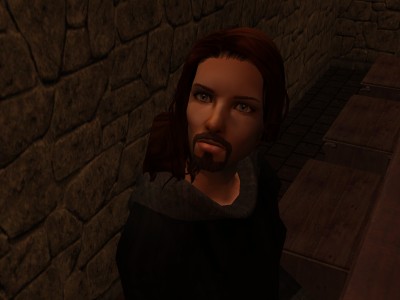
“Sigefrith…”
Aelfden had not yet prepared what he was about to say, but he would not have had the chance to say it in any case. Sigefrith attacked, but he attacked himself. With something between a snarl and a sob, he reared back his head and slammed it into the wall.
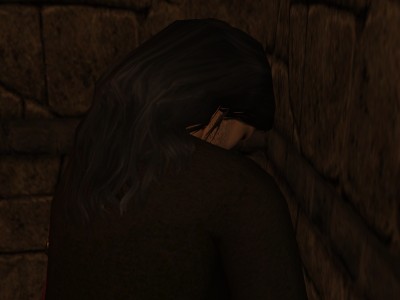
He had the time to do it twice more before Aelfden could scramble to his feet and pull him away from the wall.
“Sigefrith!”
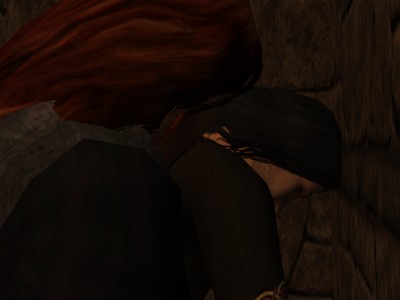
“She’ll never forgive me!” he sobbed. “And she’ll never admit she blames me, so that I can ask her to!”
“Are you certain she does?”
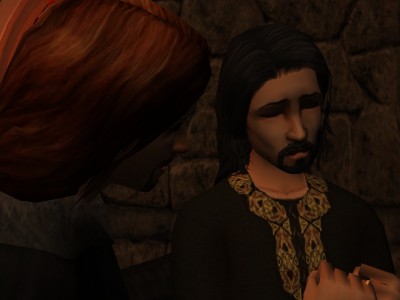
“How can she not? If she needed to look to miracles to explain her second baby in only five years, how can she not look to divine retribution to explain her miracle baby’s death?”
“I shall speak to your wife,” Aelfden murmured. “She is a good Christian woman, and if you estimate her capacity for forgiveness on the basis of your own, then you underestimate her. But I think, more importantly, that she is wise enough not to blame you.”

Aelfden did not in fact believe the Queen to be wise, but her sort of blind faith, while easily led astray, was easily led back onto the right path again. It was Sigefrith who worried him. Sigefrith had a mind keen enough to question everything, including matters of faith, and he seemed to meet God not as the Father of all, but as the King of kings – and Sigefrith met fellow kings with his diplomat’s mind.
“Sigefrith, is not the Lord your father?”
“My father was the greatest blasphemer of his generation,” he said with mournful pride.
“Is not the Lord your father?”
Sigefrith nodded.
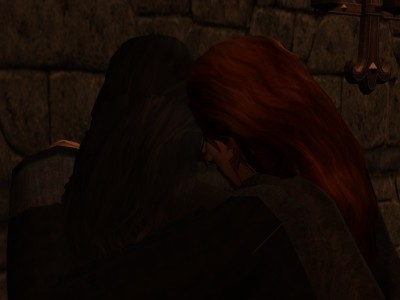
“Then you, as a father, know more about His love than I do, who have no children. Listen to me. Are your children perfect? Do they never misbehave?”
“Certainly not.”
“When they misbehave, do you ever kill something they love to punish them? Caedwulf’s dog? Or Emma’s puppies?”
“Certainly not! I see where this is going, Father,” he said accusingly, which already sounded more like Sigefrith than the despairing man of a moment before.
“I’m certain you do. There is no one to whom it is easier to explain God’s love than to loving fathers. I shall allow you to reach the conclusion on your own.”
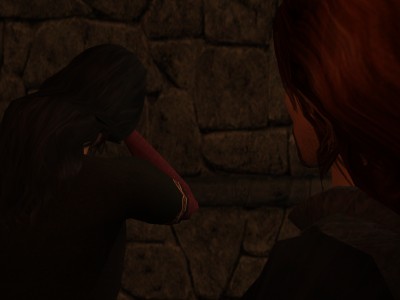
Sigefrith laughed ruefully and rubbed his head. “Damn! You might have explained that a moment before and spared me the headache I shall have for the rest of the day.”
“I had not anticipated your gesture.”
“Perhaps it’s just as well. I’m certain my head needed some sense beaten into it. But I thank you for your additional contribution to my sum of sense!” he said cheerfully.
“Sigefrith,” Aelfden frowned.
“What? I feel perfectly fine!”
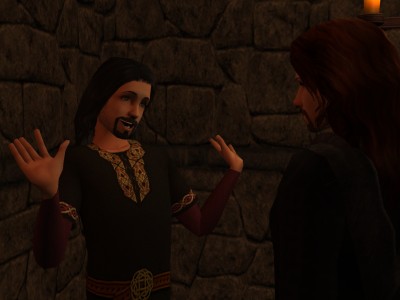
“You aren’t fooling me.”
“I don’t have to fool you. I only have to fool my wife, my children, my family, my friends, and my people. God help me if I have to fool Father Aelfden as well!”
“I hope that when you are tired of fooling you will come speak to me.”
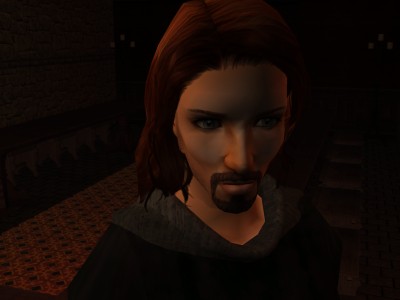
“I shall, Father. You are a very convenient listener. The only kingdom that interests you is not of this earth, and you have no family of your own to distract you. Indeed,” he laughed, “I think you would be an ideal king after all, when I die!”
Aelfden shook his head.
“Don’t worry about me, Father,” Sigefrith said and patted his cousin on the shoulder. “I do have my family and my kingdom to distract me, so I don’t even have the time to mourn. And if I ever have the desire to repeat my unanticipated gesture, I swear to you that I shall come to do it here. If I must dash out my brains against some wall, I should like it to smell as sweet as yours!”









Oh dear. Sigefrith is depressed and guilt-racked...